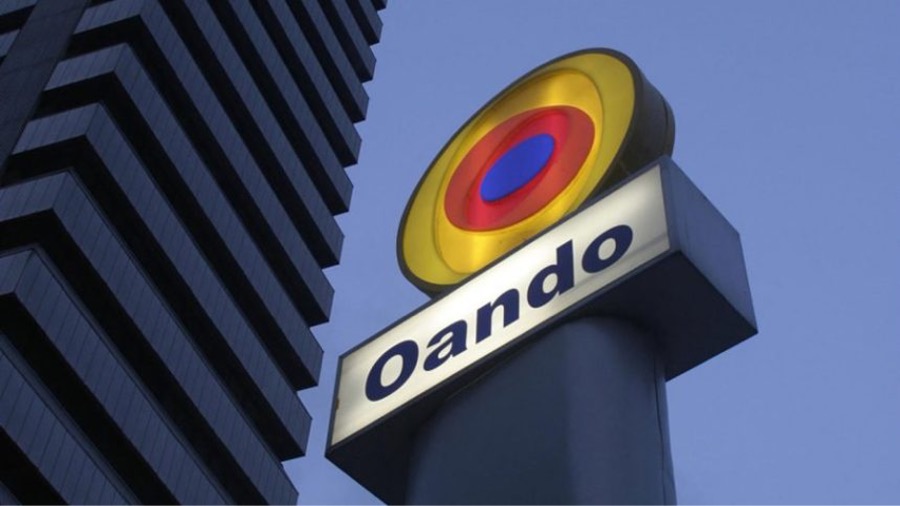Oando PLC, Nigeria’s leading indigenous energy group listed on both the Nigerian and Johannesburg Stock Exchanges, has announced its unaudited results for the twelve-month period ending December 31, 2024. The company reported a 45% increase in revenue, reaching ₦4.1 trillion, compared to ₦2.9 trillion in 2023. Profit after tax also rose by 9% to ₦65.5 billion, up from ₦60.3 billion in the previous year.
This remarkable financial performance is largely attributed to increased production, strategic acquisitions, and cost optimization measures. The company’s ability to sustain growth is further reinforced by improved operational efficiencies, adoption of cutting-edge technology, and expansion into emerging energy markets.
Oando has remained committed to diversifying its revenue streams through investments in gas commercialization, renewable energy, and enhanced oil recovery techniques. Additionally, the company has focused on enhancing risk management strategies to mitigate foreign exchange volatility and rising interest rates, ensuring financial stability.
Oando’s leadership has reaffirmed its commitment to delivering long-term value to shareholders, focusing on sustainable growth strategies, and strengthening collaborations with key industry stakeholders. With strong financial fundamentals and a clear vision for the future, Oando is well-positioned to capitalize on emerging opportunities in Nigeria’s evolving energy sector.
Key Financial Highlights:
- Revenue: ₦4.1 trillion in 2024, a 45% increase from ₦2.9 trillion in 2023, driven by increased production output and strategic acquisitions.
- Profit After Tax: ₦65.5 billion, marking a 9% growth from ₦60.3 billion in the prior year, demonstrating strong operational performance despite macroeconomic challenges.
- Earnings Per Share (EPS): Expected increase due to improved profitability and revenue growth, ensuring better returns for investors.
- Market Performance: Oando’s stock price remains steady amidst positive earnings reports, with a year-to-date increase reflecting investor confidence.
- Dividend Payout: The company is expected to maintain a stable dividend policy, reinforcing shareholder value creation.
- Debt Management: Oando has optimized its debt portfolio, reducing financing costs through effective treasury management.
- Cash Flow Strength: The company’s free cash flow generation has improved, supporting further investments in infrastructure and technology.
Operational Highlights:
- Production Increase: The company achieved a 46% rise in exit production, reaching 30,712 barrels of oil equivalent per day (boepd) in 2024, up from 21,036 boepd in 2023.
- Average Production: There was a 3% increase in average production, with 23,911 boepd in 2024 compared to 23,258 boepd in 2023.
- Crude Oil Production: Average oil production grew by 27% to 7,864 barrels per day in 2024, up from 6,211 barrels per day in 2023.
- Gas Production: The company also increased its gas production by 15%, reaching 95 million standard cubic feet per day (MMSCFD) compared to 82 MMSCFD in the previous year.
- Operational Efficiency: Oando implemented new enhanced oil recovery (EOR) techniques and adopted digital monitoring systems to maximize production efficiency and reduce downtime.
- Infrastructure Development: The company invested in upgrading key pipeline infrastructure to improve crude and gas transportation capacity, reducing bottlenecks and increasing efficiency.
The significant growth in production is attributed to Oando’s successful acquisition and integration of NAOC Ltd, which enhanced the company’s production capacity. This strategic move led to peak operated production of 103,206 boepd and net entitlements of 45,000 boepd. Additionally, investments in sustainable energy solutions, such as gas commercialization and carbon capture technologies, further supported operational resilience.
Macroeconomic Context:
Nigeria’s economic landscape in 2024 has been characterized by high inflation, rising interest rates, and fluctuating foreign exchange rates:
- Inflation: Nigeria’s Consumer Price Index (CPI) stood at 34.80% as of December 2024.
- Interest Rate: The Central Bank of Nigeria (CBN) raised the Monetary Policy Rate (MPR) to 27.50% in November 2024.
- Foreign Exchange Rates: The Naira remained volatile, closing at ₦1,475 per USD on January 31, 2025.
- Stock Market Performance: The NGX All Share Index closed at 104,630.30 points, reflecting investor confidence in the market.
Despite these challenges, Oando’s resilience and strategic initiatives enabled the company to achieve significant growth.
Challenges and Strategic Responses:
- Foreign Exchange Volatility: Currency fluctuations impacted Oando’s operational costs.
- Acquisition Costs: Expenses related to the NAOC acquisition affected short-term profitability.
- Cost Optimization: Oando is implementing rigorous cost control measures to enhance efficiency.
- Technology & Innovation: The company is leveraging digital solutions to optimize production and supply chain management.
Outlook and Future Strategy:
- Operational Efficiency: The company plans to focus on cost optimization and leveraging technology to improve productivity.
- Production Expansion: Oando aims to boost production through rig-less and workover initiatives, alongside an aggressive drilling program across three rig lines.
- Security Framework: Collaborating with stakeholders, Oando is implementing a revamped security framework that integrates advanced surveillance technology and intelligence-driven initiatives to address oil theft and operational risks.
These strategic moves position Oando PLC for sustained growth and value creation for shareholders in the coming years.
Conclusion:
Oando PLC’s strong financial performance in 2024 highlights the resilience of its business model amid economic challenges. With a robust strategy focused on operational efficiency, cost management, and security, the company is well-positioned for long-term success.
Investors and stakeholders will be keenly watching how Oando navigates 2025, with expectations of continued revenue growth and enhanced profitability.
